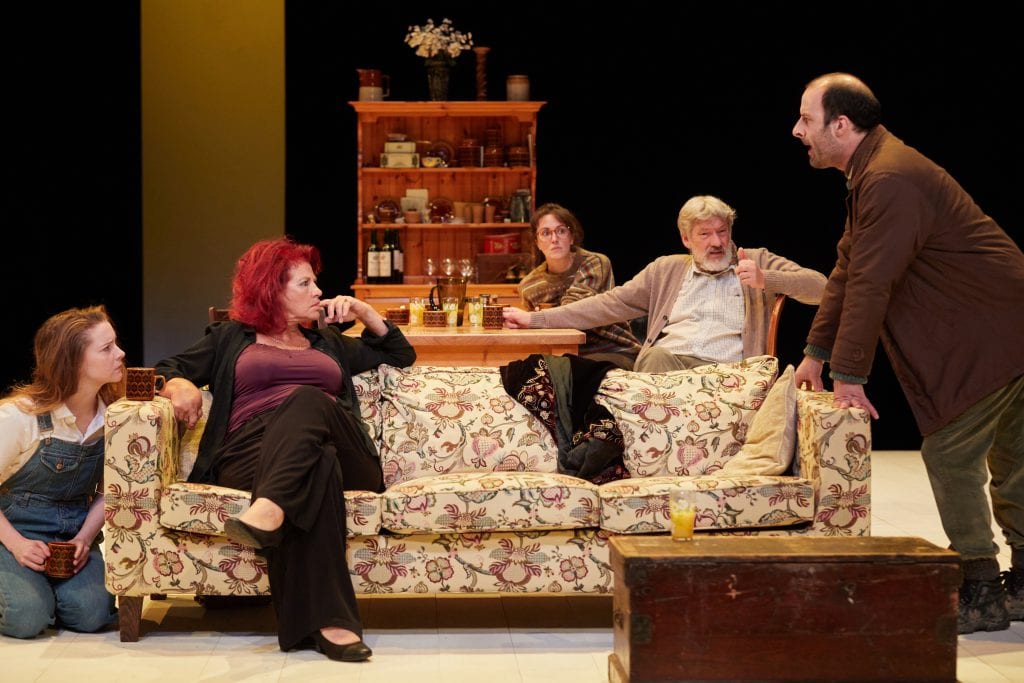Gary Owen’s new vision of The Cherry Orchard brilliantly translates Chekhov’s portrayal of pre-revolutionary Russia into a bittersweet evocation of intimate and political unravelling.
The scene is set in the 1980s, in the domain of Bloumfield, Pembrokeshire, where Rainey (Denise Black) comes back to stay with her family after years of absence, as their house and the titular orchard are about to be auctioned. Rainey fled from her home to forget the death of her son, and her relationship with her surviving daughters Val (Hedydd Dylan) and Anya (Morfydd Clark) has become strained by their resentment of their mother’s irresponsibility and drunkenness. However, it is difficult not to be fascinated by Black’s interpretation of Rainey: a seductress on the downhill, she is often dislikeable, but vulnerable. Her scenes with Val exudes tenderness and reveals their past complicity, eroded by Rainey’s selfishness.
The heydays of communism may be a thing of the past, but the play still has its revolutionary figure in the form of Ceri, a ruthless, but seemingly aimless young man portrayed with energy by a remarkable Richard Mylan. Owen’s adaptation is a clever look back at days when faith in the market still held currency, and when robots could still be expected to save the day.
That being said, the political commentary is ultimately secondary to the production’s impressionistic atmosphere. Dottie (Alexandria Riley), the maid, provides an acerbic counterpoint to her employers’ naïve beliefs in their respective ideologies – but is also a truly moving figure, as the one character who will have no choice but to carry on and fend for herself.
Rachel O’Riordan’s direction has an eerie quality, as ghosts of the past, contained in familiar objects, slowly resurface. Kevin Treacy’s subtle play with lights, and Simon Slater’s use of natural sounds, such as the noise of the sea breaking against the shore, add to the production’s elegiac feeling. The Cherry Owen, as revisited by Owen and O’Riordan, sharpens the edge of Chekhov’s original play, but loses nothing of the beautiful melancholy of the original.

